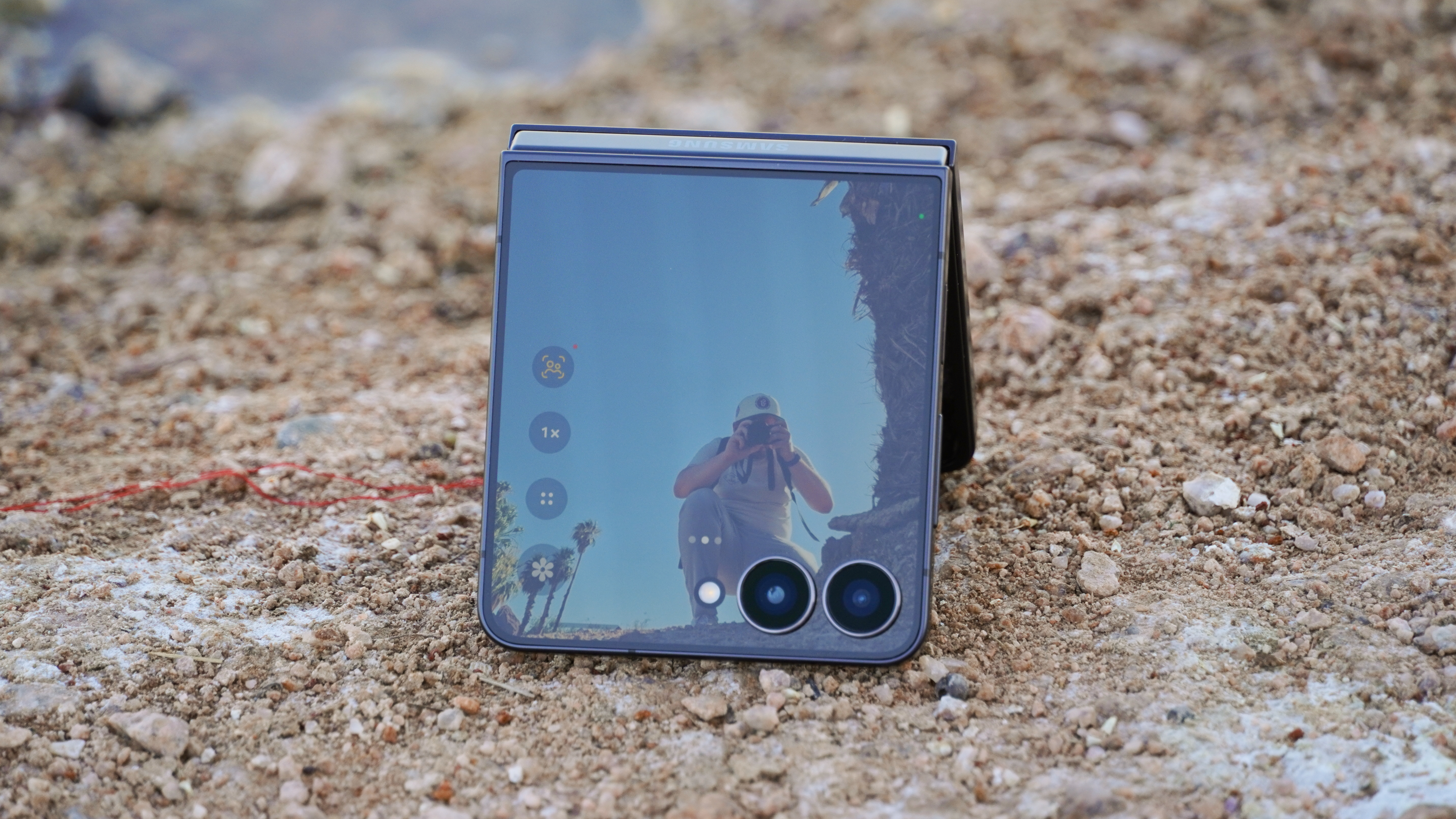Google Pixel 10 vs. Pixel 9: Not an easy choice
The Google Pixel 10 is a turning point for the Pixel brand.
Get the latest news from Android Central, your trusted companion in the world of Android
You are now subscribed
Your newsletter sign-up was successful
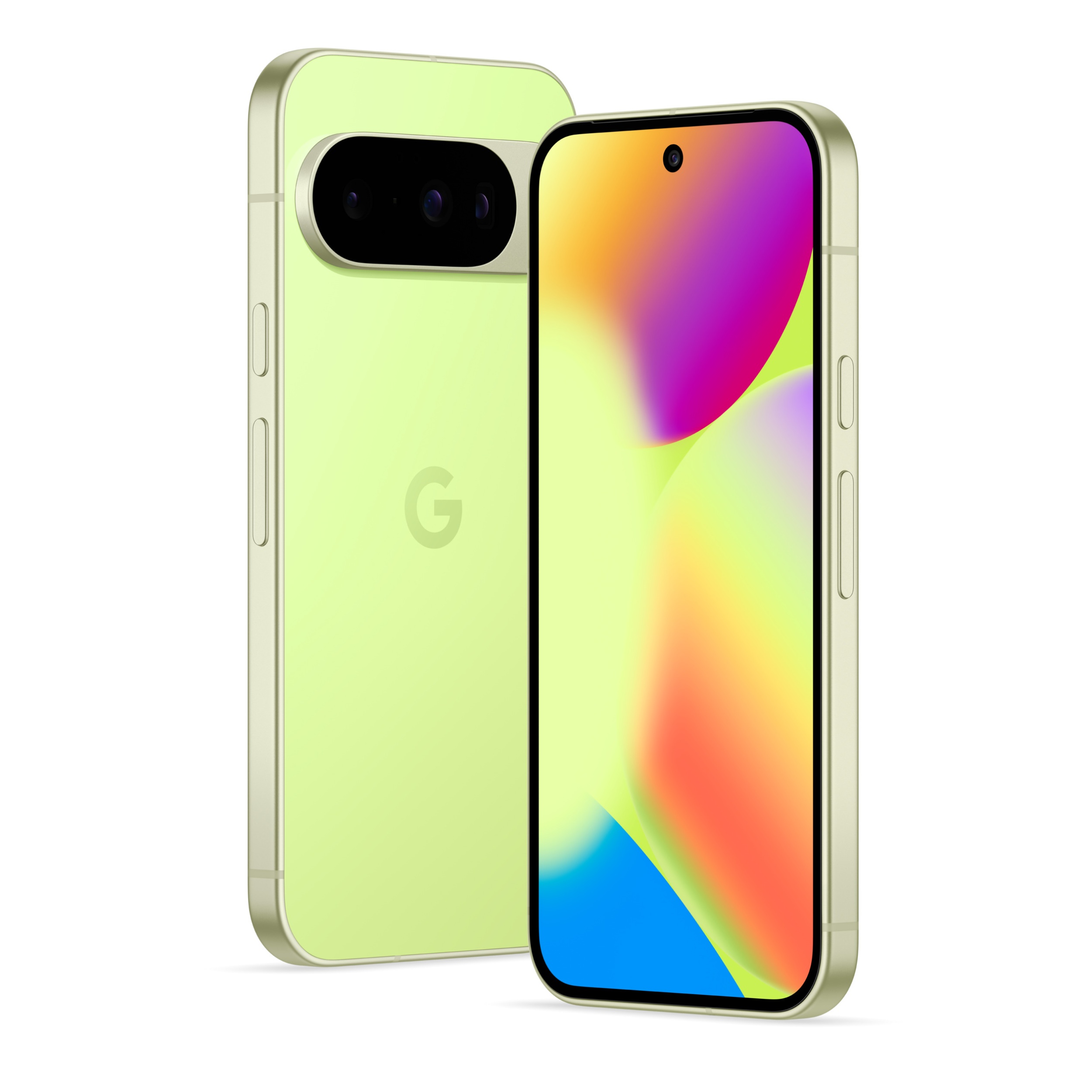
New and improved
The Google Pixel 10 is getting a few major upgrades this year, including a Tensor G5 processor built by TSMC and a telephoto lens for the first time. The base-model Pixel feels more "Pro" than ever, thanks to display, camera, and software improvements.
Pros
- Larger battery
- Upgraded Tensor G5 chip fabricated by TSMC
- 5x optical zoom telephoto lens
Cons
- Jury is still out on the new primary camera sensor
- Similar design to Pixel 9
- Base model has frustrating limitations, like no PWM display upgrades or Wi-Fi 7
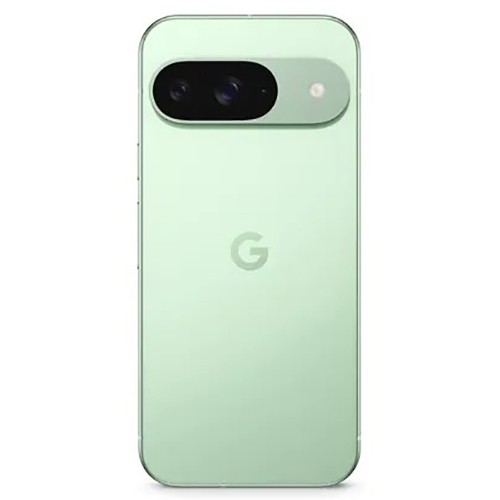
The current contender
The Google Pixel 9 is still the newest base-model Pixel you can get. It's powered by the Tensor G4 chip, has a 50MP main camera, and a sleek design. Plus, it's only getting cheaper.
Pros
- Premium-feeling design
- Main camera sensor could beat the upcoming Pixel 10
- Still covered with software support for many more years
Cons
- Tensor G4 chip doesn't keep up with current-gen processors
- Slow charging speeds
- Competing with Pixel 9a in terms of value
The Google Pixel 9 was one of the best smartphones of 2025, and its successor, the Google Pixel 10, is finally official. The Pixel 10 keeps a few things from the Pixel 9 while adding major upgrades. If you're in the market for a new Android phone, you might be wondering how the Pixel 10 to compares to the model it's replacing.
With a new Tensor G5 chip, display and camera improvements, and Qi2 support, the Google Pixel 10 is a bigger upgrade than you'd think from a quick glance. It might be the phone to get, even if you currently have a Google Pixel 9. Here's everything you need to know about how the Pixel 10 improves upon the successful Pixel 9.
Google Pixel 10 vs. Pixel 9: Design and display
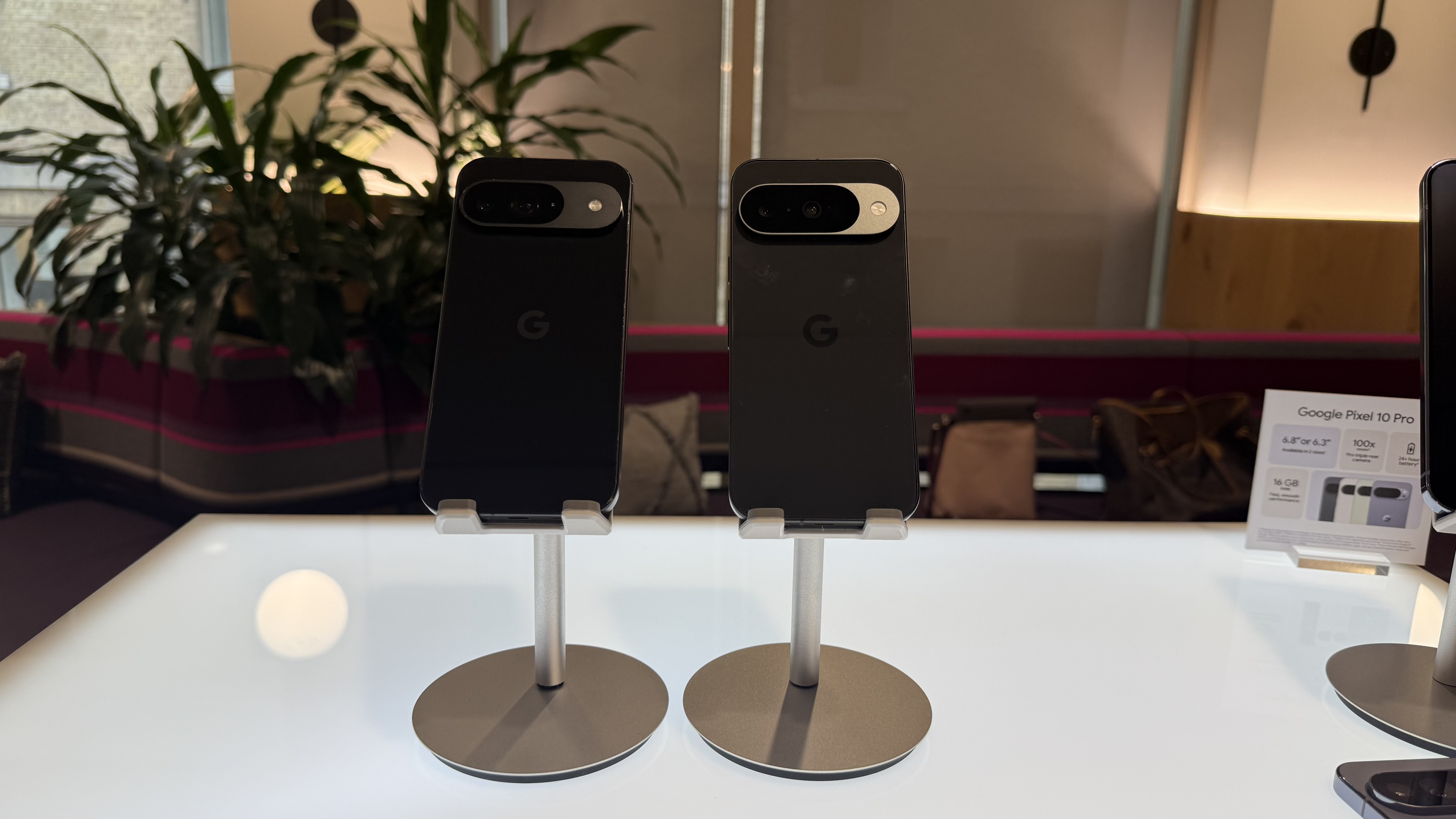
The Google Pixel 10 retains a similar design to the Pixel 9, with a larger camera bump and slightly different dimensions. There are a few new colorways available on the Pixel 10, such as Indigo, Frost, and Lemongrass, which join the classic Obsidian (black) option. Otherwise, the Pixel 10 keeps the same build as the Pixel 9, with flat aluminum side rails featuring chamfered edges and a glass back.
The Pixel 10's exact dimensions reveal that Google kept the same form factor, but made the device thicker this year. The entire packages measures 152.8 x 72.0 x 8.6mm, and the Pixel 9 measures 152.8 x 72.0 x 8.5mm by comparison. The newer model is heavier too, at 204 grams, whereas the Pixel 9 weighs 198 grams.
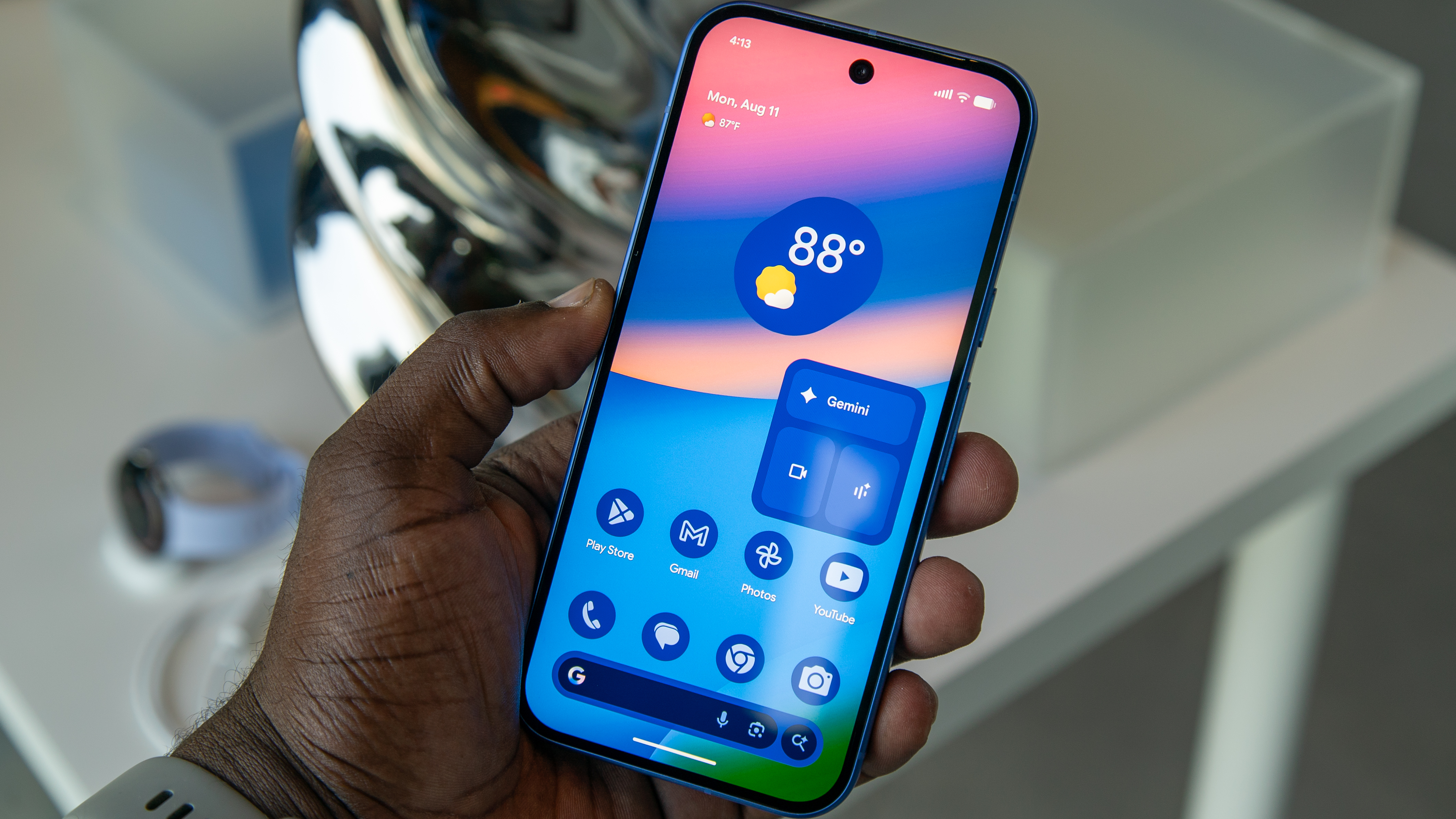
The new model's dimensions, which are similar but not identical, eliminate the chance of cross-generation case compatibility. It's also worth noting that the Pixel 10 takes the general size of the Pixel 9 and makes it thicker and heavier. The Google Pixel 9 was already on the chunkier side of phones, and now the Pixel 10 will feel even bigger in your hand or pocket.
While it would've been nice to see the Pixel 10 cut some weight to compete with flagships from Apple and Samsung, Google didn't go that route. The hope appears to be that a bigger battery, Qi2 support, and an additional camera is enough to justify the changes.
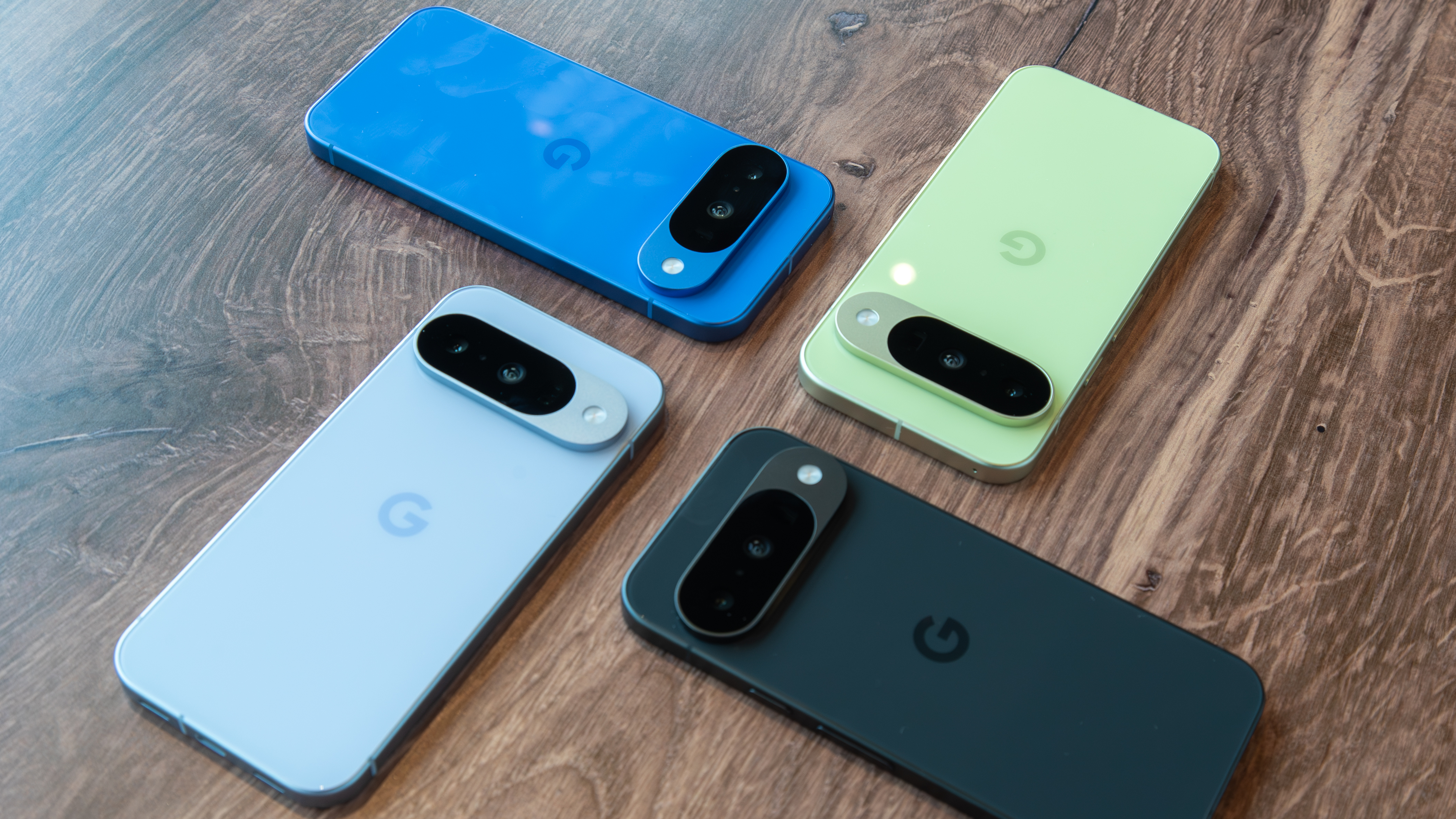
Alongside the similar material choices, both the Pixel 10 and Pixel 9 offer Gorilla Glass Victus 2 and IP68 certification against dust and water ingress. The Pixel 10 display matches the Pixel 9's display specifications in every area but one. That means you'll get a 6.3-inch 120Hz Actua OLED with a 2424 x 1080 resolution. However, although both phones have HDR support, only the Pixel 10 has a peak brightness rating of 3,000 nits — the Pixel 9 can only hit 2,700 nits.
Get the latest news from Android Central, your trusted companion in the world of Android
To differentiate the Pixel 10 display from that of the Pixel 9, Google made the brightness tweak. While the "Pro" models also gained higher PWM capabilities, these aren't available on the base Pixel 10.
Google Pixel 10 vs. Pixel 9: Hardware and specs
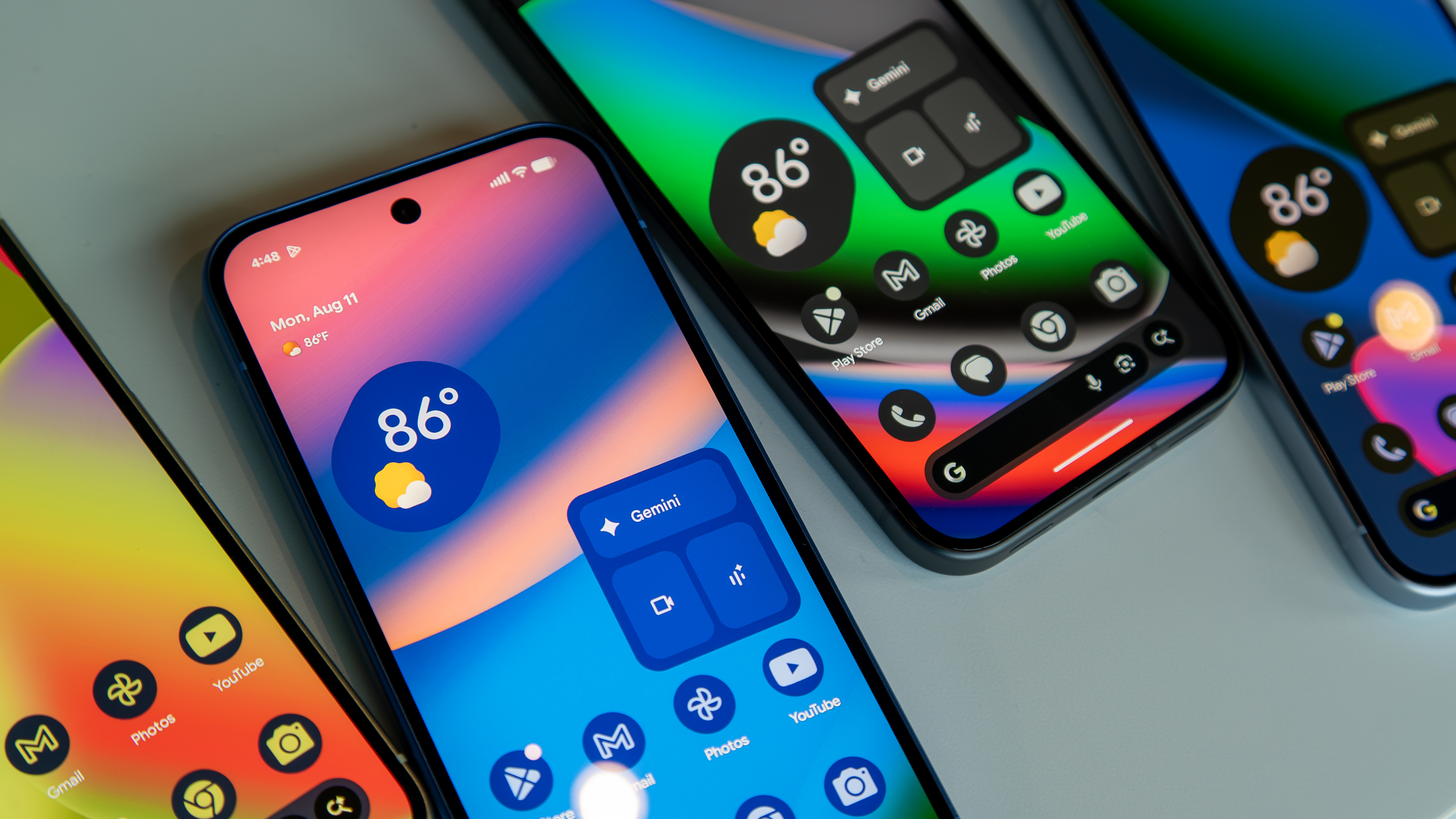
The Google Pixel 10 features the Tensor G5 as its processor, which isn't exactly surprising. Each generation of Pixel phones receives a new Tensor chip since Google made the switch to its own silicon designs, but not every annual upgrade is equal. The upgrade to Tensor G5 is a big one, as Google is using TSMC's 3nm process node instead of Samsung Foundry's 4nm one to make this chip.
Aside from gaining access to TSMC's advanced fabrication processes, Google swapped out a few components in the Pixel 10, such as a fully-custom image-signal processor (ISP) for the first time. A leaked parts list for the Tensor G5 serves as a speculative rundown of the Tensor G5's upgrades, although Google isn't sharing too much about the individual components of the chip.
We do know that the Tensor G5's CPU is roughly 34% faster on average than the Tensor G4, according to Google. The tensor processing unit (TPU), used for AI-based tasks is said to be up to 60% more powerful. Google claims that the Tensor G5's new ISP helps "deliver Pixel’s best image and video quality" we've seen.
Considering the Tensor G4 was widely considered to be a disappointment compared to the Apple A18 Pro and Qualcomm Snapdragon 8 Elite, this could be crucial for the Pixel 10. The Pixel 9 and its Tensor G4 system-on-a-chip excel at AI tasks, but fall short in raw performance.
Category | Google Pixel 10 | Google Pixel 9 |
|---|---|---|
OS | Android 16, seven software upgrades | Android 14, seven software updates (upgradeable to Android 16) |
Display | 6.3-inch 120Hz Actua OLED, 2424x1080, HDR, Gorilla Glass Victus 2, 3000 nits max | 6.3-inch 120Hz Actua OLED, 2424x1080, HDR, Gorilla Glass Victus 2, 2700 nits max |
Chipset | Tensor G5, Titan M2, 3nm | Google Tensor G4, Titan M2, 4nm |
RAM | 12GB | 12GB |
Storage | 128GB/256GB | 128GB/256GB |
Rear camera 1 | 48 MP, f/1.7, 1/2-inch, multi-zone LDAF, OIS | 50MP f/1.68 1/1.31-inch module, 82-degree FoV, OIS |
Rear camera 2 | 10.8 MP, f/3.1 (telephoto), 1/3.2-inch, multi-zone LDAF, OIS, 5x optical zoom | 48MP f/1.7 1/2.55-inch module, wide-angle, 123-degree FoV |
Rear camera 3 | 13MP, f/2.2 ultrawide, 120-degree FoV, multi-zone LDAF | N/A |
Front camera | 10.5MP f2.2, autofocus, 95-degree FoV | 10.5MP f2.2, autofocus, 95-degree FoV |
Ingress protection | IP68 dust and water resistance | IP68 dust and water resistance |
Connectivity | Global 5G, Satellite SOS (U.S.), Wi-Fi 6E, Bluetooth 6, NFC | Global 5G, Satellite SOS (U.S.), Wi-Fi 7, Wi-Fi 6 (India), Bluetooth 5.3, NFC |
Security | Optical fingerprint sensor | Optical fingerprint sensor |
Audio | USB-C, stereo sound | USB-C, stereo sound |
Battery | 4,970mAh | 4,700mAh battery, |
Dimensions | 152.8 x 72.0 x 8.6mm, 204g
| 152.8 x 72.0 x 8.5mm, 198g |
Colors | Indigo, Frost, Lemongrass, Obsidian
| Obsidian, Porcelain, Wintergreen, Peony |
Otherwise, the Pixel 10 keeps the exact same RAM and storage options as the Pixel 9. Both phones have 12GB of memory and either 128GB or 256GB of storage. Higher capacities are reserved for the more expensive Pixel 10 models, as usual.
The Pixel 10 shockingly doesn't consistently feature top-of-the-line connectivity support, as its predecessor. The Pixel 9 only had Bluetooth 5.3 support, and the Pixel 10 sports Bluetooth 6. However, wireless has been downgraded from Wi-Fi 7 on the Pixel 9 to Wi-Fi 6E on the Pixel 10. Both models support 5G, but the Pixel 10 is eSIM-only.
The only other major hardware change is a bump to battery capacity, which is 4,970mAh on the Pixel 10. That's up from 4,700mAh on the current Pixel 9. You also get magnetic Qi2 support on the Pixel 10 with up to 15W wireless charging speeds.
Google Pixel 10 vs. Pixel 9: Cameras
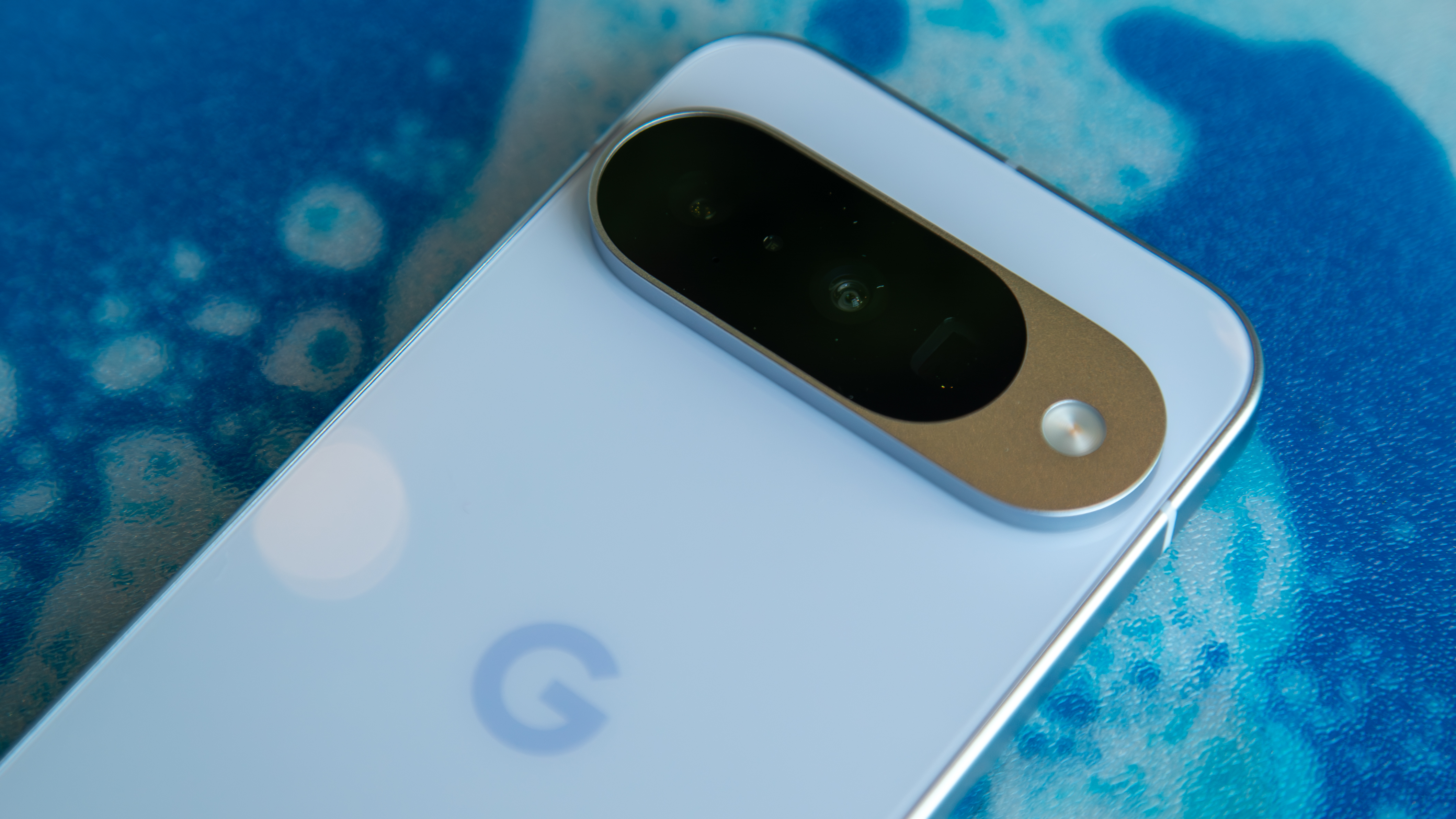
Google's base-model Pixel phones haven't offered a telephoto lens for optical zoom in the past, but that's now changing with the Pixel 10. The phone adds a 10.8MP telephoto camera offering up to 5x optical zoom for the first time. This is in addition to a 13MP ultrawide and a primary camera, bringing a triple-camera system to the smartphone.
The Pixel 10's primary camera is a 48 MP f/1.7 sensor, likely similar to or identical to the cameras found on the Google Pixel 9a and Pixel 9 Pro Fold. While this could be seen as a downgrade compared to the Pixel 9's 50MP main camera, there is likely more to the story. The Pixel 9a's "downgraded" primary camera actually resulted in better photos overall than its predecessor. Throw in the Tensor G5's custom ISP, and the camera quality will probably be better on the Pixel 10.
The Pixel 9 features two rear cameras: a 50MP main sensor and a 48MP ultrawide sensor. Both phones have the same 10.5MP front-facing camera.
Google Pixel 10 vs. Pixel 9: Which should you buy?
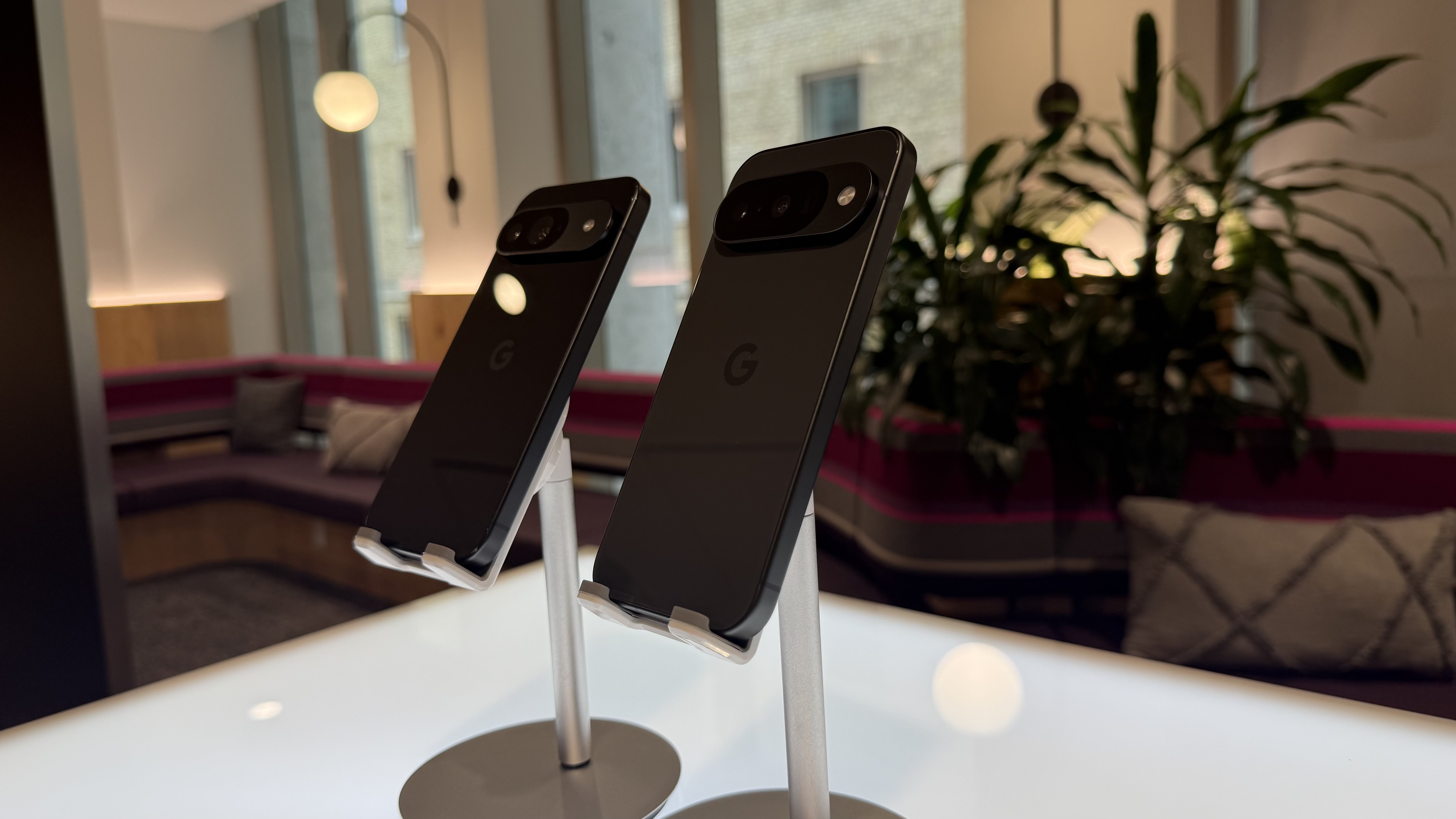
The Google Pixel 10 adds key quality-of-life upgrades compared to the Pixel 9, but it isn't a slam-dunk upgrade. There are some quirks, like the Wi-Fi downgrade and the lack of a SIM tray. Otherwise, Google's switch to TSMC for Tensor G5 chip fabrication helps Pixels compete with Apple and Qualcomm-powered mobile processors for the first time. A telephoto lens onboard gives the Pixel 10 a fighting chance against the base-model Samsung Galaxy S25, too.
However, it isn't time to count out the Pixel 9 just yet. Frequently available at a discount, the Pixel 9 could offer an excellent value proposition for buyers. With six-plus years of software support remaining, the phone will be a relevant flagship for many years to come.

Latest and greatest
The Google Pixel 10 is one of the best base-model Android flagships today, thanks to the new Tensor G5 chip and a 5x telephoto camera. Throw in support for Qi2 and more, and it's easy to see how the Pixel 10 is a tempting upgrade for anyone with an older Pixel.

The value option
The Google Pixel 9 is often found at prices far below its $799 retail figure, and the discounts will only continue when the Pixel 10 releases. As such, it could be a neat way to get a flagship experience on a budget if the Pixel 9a isn't your style.

Brady is a tech journalist for Android Central, with a focus on news, phones, tablets, audio, wearables, and software. He has spent the last three years reporting and commenting on all things related to consumer technology for various publications. Brady graduated from St. John's University with a bachelor's degree in journalism. His work has been published in XDA, Android Police, Tech Advisor, iMore, Screen Rant, and Android Headlines. When he isn't experimenting with the latest tech, you can find Brady running or watching Big East basketball.
You must confirm your public display name before commenting
Please logout and then login again, you will then be prompted to enter your display name.
